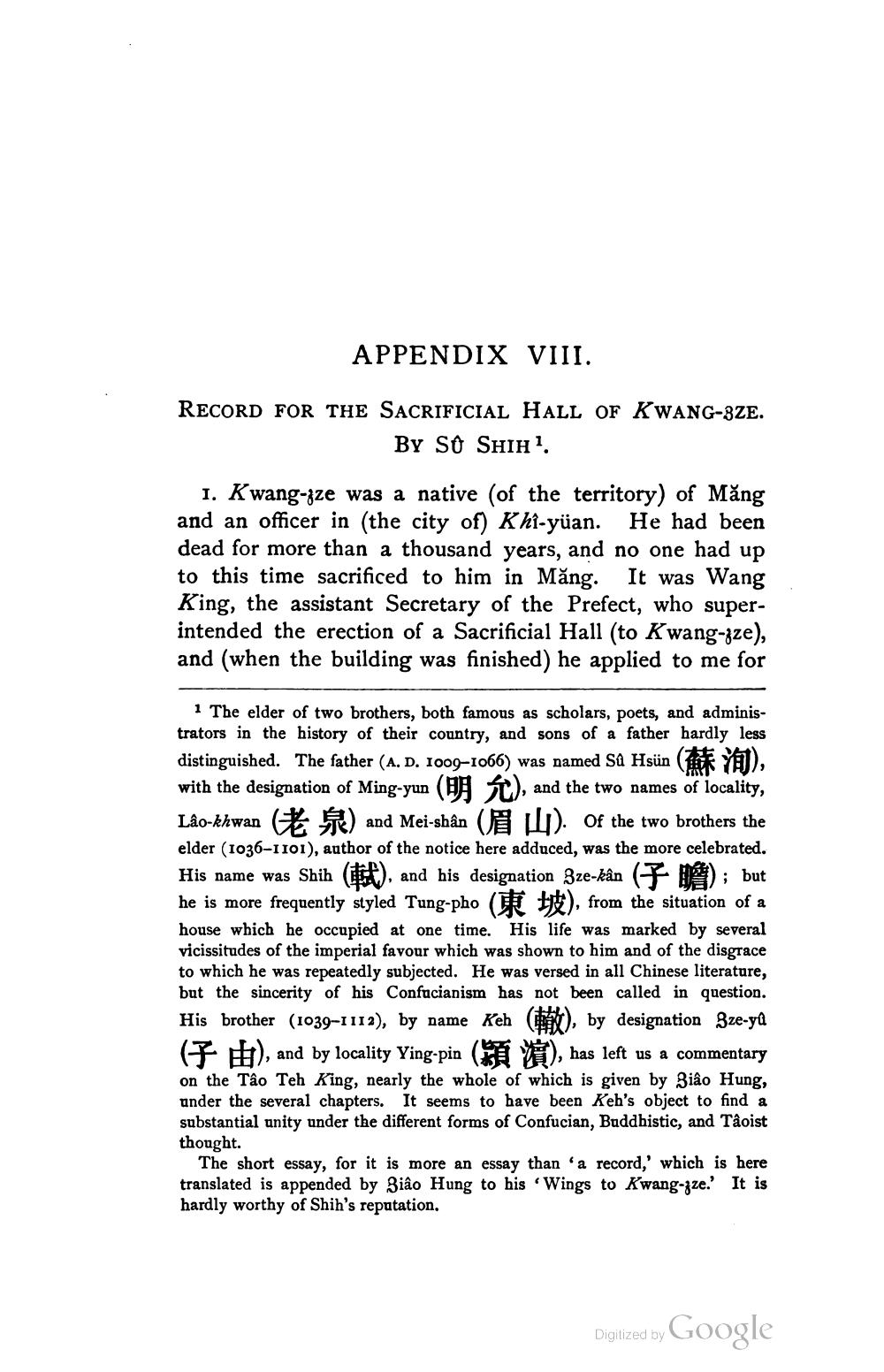________________
APPENDIX VIII.
RECORD FOR THE SACRIFICIAL HALL OF KWANG-BZE.
BY SÚ Shih 1.
1. Kwang-gze was a native (of the territory) of Măng and an officer in the city of) Khi-yuan. He had been dead for more than a thousand years, and no one had up to this time sacrificed to him in Măng. It was Wang King, the assistant Secretary of the Prefect, who superintended the erection of a Sacrificial Hall (to Kwang-zze), and (when the building was finished) he applied to me for
1 The elder of two brothers, both famous as scholars, poets, and administrators in the history of their country, and sons of a father hardly less distinguished. The father (A. D. 1009-1066) was named Sa Hsün ( ), with the designation of Ming-yun ( ), and the two names of locality, Lâo-khwan ) and Mei-shân ( LI). Of the two brothers the elder (1036-1101), author of the notice here adduced, was the more celebrated. His name was Shih t), and his designation 3ze-kân (F M ); but he is more frequently styled Tung-pho ( W), from the situation of a house which he occupied at one time. His life was marked by several vicissitudes of the imperial favour which was shown to him and of the disgrace to which he was repeatedly subjected. He was versed in all Chinese literature, but the sincerity of his Confucianism has not been called in question. His brother (1039–1112), by name Keh (), by designation 3ze-ya (F ), and by locality Ying-pin (b ), has left us a commentary on the Tao Teh King, nearly the whole of which is given by Ziâo Hung, under the several chapters. It seems to have been Keh's object to find a substantial unity under the different forms of Confucian, Buddhistic, and Taoist thought.
The short essay, for it is more an essay than a record,' which is here translated is appended by Ziâo Hung to his Wings to Kwang-zze. It is hardly worthy of Shih's reputation.
Digitized by Google




